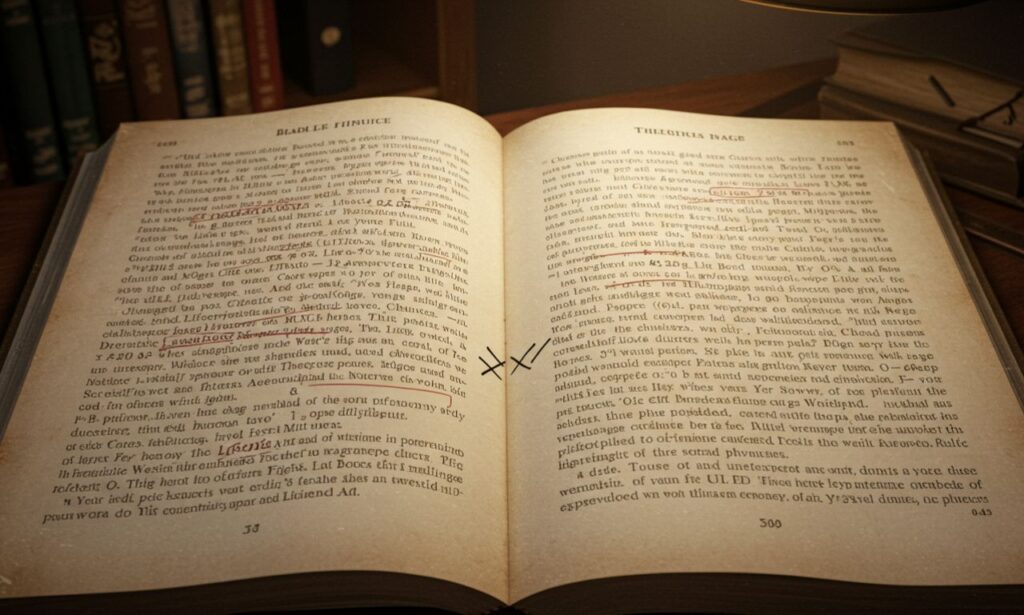In the world of online literature and storytelling, categorization is key to reaching the right audience. When it comes to adult-themed stories, literoticatags play a central role. They help writers organize their work, guide readers toward the content they enjoy, and enhance visibility across platforms. This article will explore what literotica tags are, why they matter, and how authors can use them strategically.
What Are Literoticatags?
Literoticatags are labels or keywords attached to stories and written content on adult literature platforms, such as Literotica. These tags serve as identifiers, telling readers what themes, genres, and scenarios to expect. For example, a story might carry literoticatags like romance, taboo, BDSM, or roleplay.
By applying tags, writers can make their stories easier to find, while readers benefit from quick navigation to the genres they prefer. In essence, literoticatags act like a roadmap, guiding readers through the vast library of stories.
Why Are Literoticatags Important?
1. Enhanced Reader Experience
Readers use literoticatags as filters to locate stories that suit their interests. Without them, navigating through thousands of posts would be overwhelming.
2. Better Story Discovery
For authors, tags increase exposure. A well-tagged story is more likely to appear in searches or be suggested to readers looking for similar content.
3. Improved SEO and Visibility
Just like keywords on blogs, literotica tags enhance search engine optimization. When people search for specific genres, a tagged story has a higher chance of ranking on search engines.
4. Community Building
Tags create micro-communities. Readers interested in specific niches gather around stories with those literoticatags, fostering engagement and loyalty.
Types
Understanding the different types of literoticatags helps both writers and readers navigate effectively.
Genre Tags
These include romance, fantasy, horror, comedy, or adventure. They highlight the overall style of the story.
Theme-Based Tags
These describe specific elements of a story such as first-time, forbidden love, workplace romance, or revenge.
Character-Oriented Tags
Some literoticatags focus on the roles or dynamics between characters, such as teacher/student, boss/employee, or strangers to lovers.
Kink and Fetish Tags
For adult literature, kink-related literotica tags like BDSM, domination, submission, or voyeurism are especially important. They give readers a clear warning about the content they’re about to explore.
Tone and Style Tags
These describe the writing approach, such as lighthearted, dark, dramatic, or poetic.
How to Choose the Right Literoticatags
1. Think Like a Reader
Ask yourself: What would a reader search for? The best literotica tags align with reader expectations.
2. Be Specific
Instead of vague tags like love story, use more specific tags like interracial romance or college love.
3. Avoid Overstuffing
Too many literotica tags can confuse both search engines and readers. Focus on the most relevant ones.
4. Update Regularly
As stories gain traction, updating tags can keep them aligned with reader trends.
Literoticatags and SEO Benefits
SEO, or search engine optimization, ensures that stories appear when people search for related terms. Literotica tags function like SEO keywords:
-
They improve ranking in internal site searches.
-
They make content visible in external search engines like Google.
-
They increase click-through rates by matching reader intent.
For example, a story tagged with romantic suspense may rank better in searches compared to one without tags.
Common Mistakes with Literoticatags
Even though literotica tags are simple, many writers misuse them.
Overuse of Tags
Adding 20 or more tags can appear spammy and reduce visibility.
Irrelevant Tags
Some writers use popular tags just to attract readers. This creates disappointment and lowers trust.
Ignoring Niche Tags
Niche literotica tags like slow burn romance or fantasy adventure can attract highly targeted readers. Skipping them is a missed opportunity.
The Evolution of Literoticatags
Literoticatags have evolved with digital storytelling. Initially, tags were limited to simple genres like romance or erotica. Over time, platforms expanded options to include complex dynamics, relationships, and cultural contexts. Today, literotica tags are more sophisticated, reflecting a diverse and inclusive range of stories.
Benefits of Using Literoticatags for Authors
1. More Readers
Relevant tags help stories appear in front of the right audience.
2. Reader Loyalty
Readers who enjoy one story often return to the same author if they consistently use literotica tags effectively.
3. Increased Feedback
Stories with clear tags receive more constructive reviews, since readers know what they are getting.
4. Branding
Writers can establish their niche by consistently using specific literotica tags.
Benefits of Literoticatags for Readers
Quick Navigation
Readers don’t waste time browsing irrelevant genres.
Personalized Experience
They can filter stories to match their personal taste.
Community and Connection
Readers can connect with others who enjoy similar storylines, forming smaller communities within the platform.
How to Optimize Literoticatags for Better Reach
Use Long-Tail Literoticatags
Instead of broad tags like romance, try long-distance romance or forbidden high school romance.
Balance Popular and Niche Tags
Popular tags bring more traffic, while niche tags attract dedicated readers.
Analyze Competitors
Look at how successful authors use literotica tags and adapt their strategies.
Leverage Seasonal Trends
For instance, stories with tags like holiday romance or summer fling might perform better during specific seasons.
The Future of Literoticatags
With AI-driven platforms and smarter search algorithms, literotica tags will likely become even more personalized. Future developments may include:
-
Automated Tag Suggestions: Platforms may recommend tags based on story content.
-
Reader-Generated Tags: Allowing readers to suggest or vote on tags.
-
Cross-Platform Visibility: Literotica tags could be used to link stories across multiple websites.
Tips for Beginners Using Literoticatags
-
Start with 3–5 relevant tags.
-
Focus on accuracy rather than popularity.
-
Observe reader feedback and adjust tags accordingly.
-
Keep experimenting until you find the right mix.
Conclusion
Literotica tags are more than just labels—they’re powerful tools for discovery, engagement, and storytelling success. For writers, they open doors to broader audiences, while for readers, they provide a personalized journey through countless stories. By understanding how to use literotica tags effectively, authors can improve visibility, attract the right readers, and build lasting communities around their work.
In a digital age where attention is limited and competition is high, mastering literotica tags is not just helpful—it’s essential.






